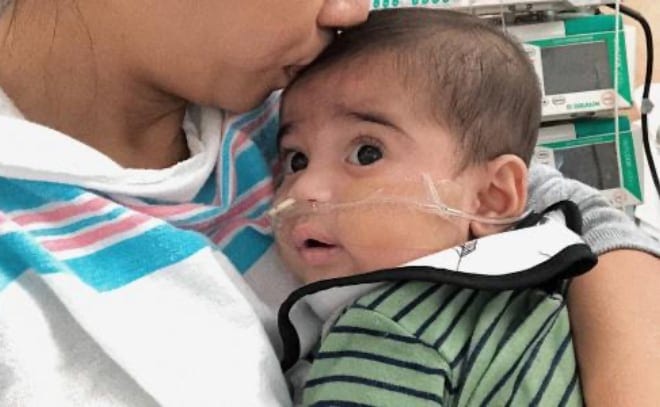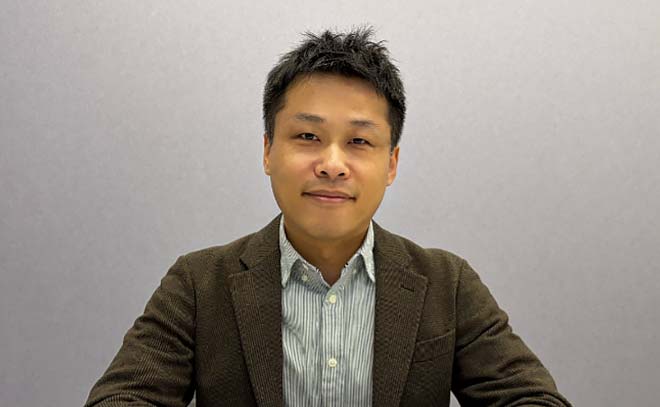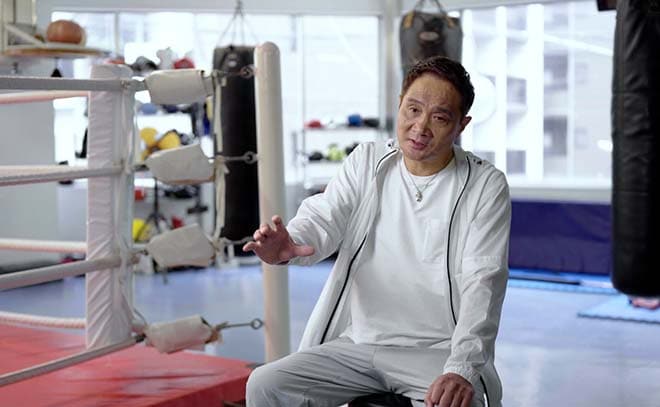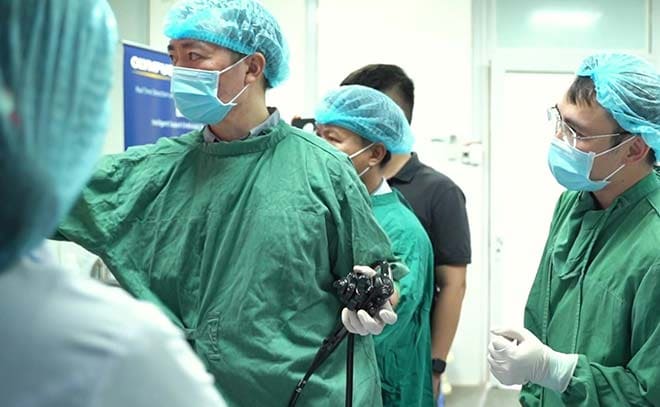A revolutionary approach saves a life
Baby Michael's Story - US
Only a few months after Michael Angelo was born to parents Jill and David Angelo, he was diagnosed with biliary atresia, a rare life-threatening liver disease that only appears in infants.
In most cases of biliary atresia, the only chance for survival is a liver transplant. After meeting with specialists at the Miami Transplant Institute, however, his parents were faced with another setback - this type of surgery had only ever been performed on babies weighing at least 13 pounds.
"Michael Angelo came to us at only 8 pounds, and if we can, we really like to wait until an infant is 13 or 14 pounds to be able to transplant them," said Dr. Jennifer Garcia, medical director of pediatric transplant services at the Miami Transplant Institute. "Michael did not give us that opportunity. He was just too sick."
Michael Angelo's only chance for survival was a liver transplant, but his very small size presented a new challenge for surgeons.
Working quickly, Michael's transplant team decided to utilize two new surgical technologies to make a liver transplant possible for him. One of the technologies chosen was an advanced energy platform, which allows for very small and very precise surgical incisions. The other was a video microscope imaging system that provides images magnified on a 4K 3D monitor. Combined, these two technologies allow new levels of precision and efficiency during organ transplantation.
Endobronchial valve treatment for emphysema
Michael Angelo's surgical team was able to increase their view of his tiny organs and complete the first-ever surgery of this kind. "It is rare to use such a tiny piece of liver, but he needed it," said Dr. Rodrigo Vianna, director of the Miami Transplant Institute. "Thankfully everything worked out."
Jill and David Angelo will be forever grateful for this technology, the medical expertise of Michael's surgeons, and the donor's family who chose to give their son the gift of life.
"I thank God every single day for this amazing team that helped save my son's life," said Jill. "Because of them, we have our baby boy."
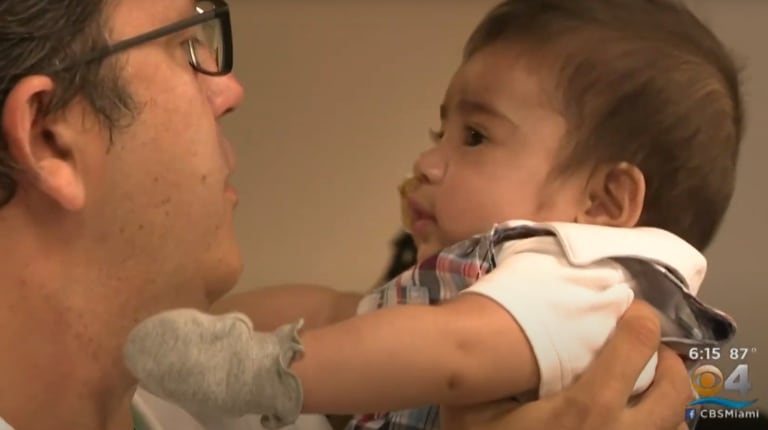
Dr. Rodrigo Vianna, director of the Miami Transplant Institute, holding baby Michael



